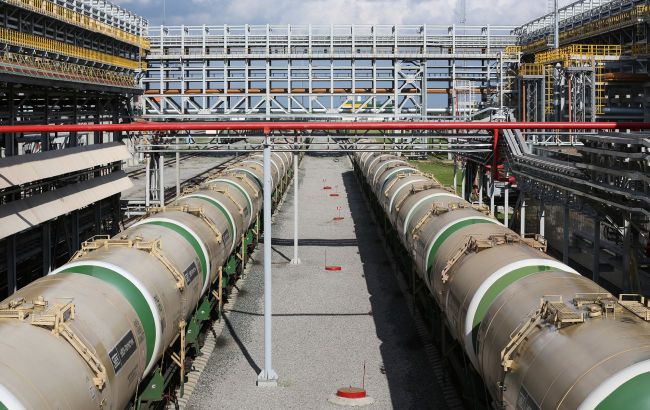Russia's Novorossiysk resumes oil loadings after Ukraine strike hits key terminal - Reuters
 Illustrative photo: Novorossiysk resumes oil shipments (Getty Images)
Illustrative photo: Novorossiysk resumes oil shipments (Getty Images)
Russia's largest oil port, Novorossiysk, has resumed operations following Ukrainian drone and missile strikes on the Sheskharis oil terminal, Reuters reports.
Sources told Reuters that on November 17, Novorossiysk and the nearby Caspian Pipeline Consortium terminal resumed crude-loading operations. Tankers from Russia's shadow fleet are now waiting to load, including the Suezmax-class Arlan and Aframax-class Rodos.
The sources also said Ukraine's attack on Novorossiysk damaged two oil berths. The strike is considered the most destructive attack on Russia's Black Sea oil export infrastructure.
"Novorossiysk accounts for about a fifth of Russian crude exports and a long shutdown would have forced costly shuttering of oil wells in West Siberia, a step that would have significantly reduced the amount of oil sent to world markets by the world’s second largest exporter," Reuters noted.
Novorossiysk ships 766,000 barrels per day through the Sheskharis terminal. In October, the Russian port handled a total of 1.794 million tons of crude and oil products.
Strike on Sheskharis: What we know
Ukraine's Defense Forces struck the Russian Navy's Novorossiysk base in the Krasnodar region overnight on November 14. Ukrainian missiles and attack drones targeted and damaged port infrastructure in the city, including the Sheskharis oil terminal.
Sheskharis is a key oil terminal at the port of Novorossiysk, jointly owned by Transneft and Rosneft. The terminal processes 35–40 large tankers each month, handling 3.5–4.5 million tons of crude, which accounts for up to 20% of Russia's seaborne oil exports.
Following the overnight drone attack, Novorossiysk port temporarily halted oil exports, and local authorities declared a state of emergency. The strike drove global oil prices up 3% and temporarily disrupted roughly 2% of the world's oil supply.

